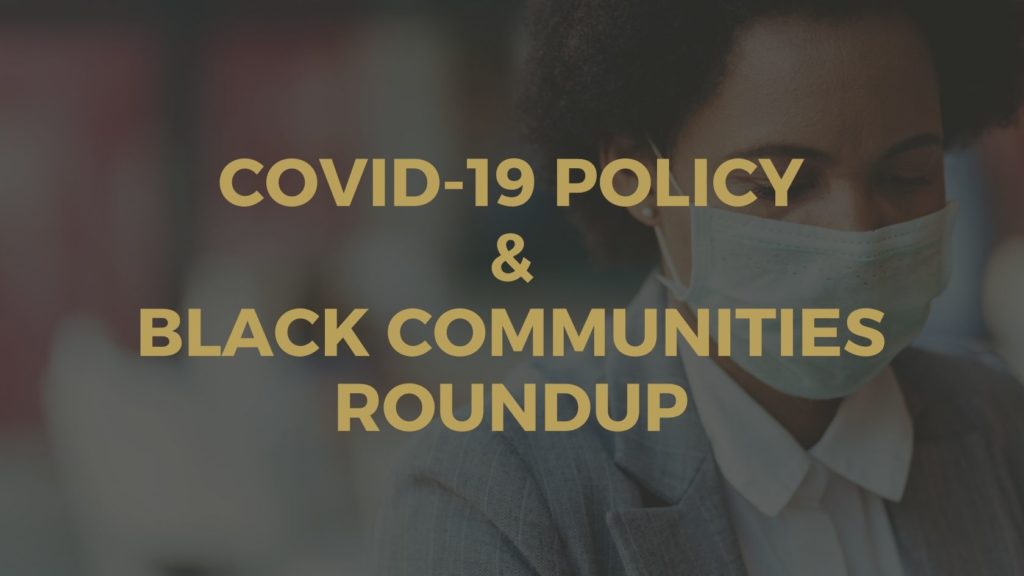
May 19 COVID-19 Policy & Black Communities Roundup
The Impact of the HEROES Act on Black Communities
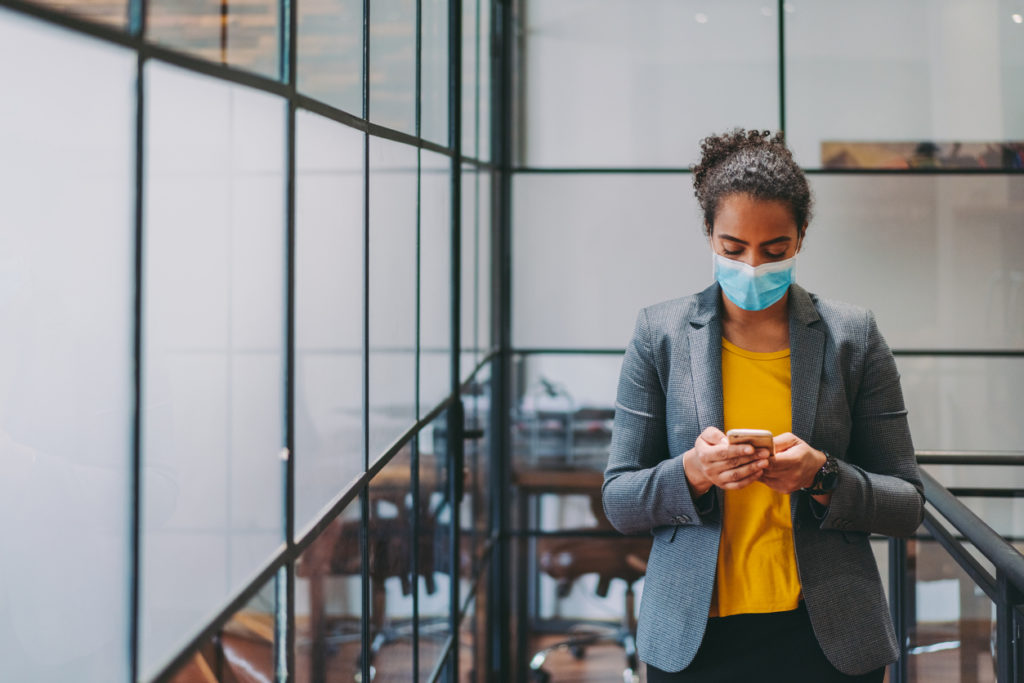
Last Friday, U.S. House Democrats passed a $3 trillion bill to address economic fallout from the coronavirus pandemic—the HEROES Act.
The bill extends federal unemployment compensation, provides direct payments to individuals of $1200 per person, increases SNAP benefits, and includes resources for renters, homeowners, and the homeless. It provides hazard pay for essential workers, expands paid leave, and protects workers from retaliation for reporting health hazards. The Act also provides money for COVID-19 testing, contact tracing, and health care providers, and expands health insurance options.
The bill directs additional resources to community development financial institutions and minority depository institutions, which are more likely to serve Black businesses. It also has several provisions that facilitate demographic data reporting by federal, state, and local agencies, and the bill provides resources for elections, broadband, HBCUs, and environmental justice grants.
While Senate Majority Leader Mitch McConnell dismissed the bill as an “1,800 page liberal wish list…that can hardly be taken seriously,” some progressives believed the bill did not go far enough.
For a more detailed analysis, read the Joint Center blog post “The Impact of the HEROES Act on Black Communities.”
New Emergency Loan Funds for Black Businesses

A day before the U.S. House passed the HEROES Act, the Joint Center hosted an online briefing on fair and equal access to capital for Black businesses through stimulus legislation. The briefing addressed structural inequities faced by Black businesses and explored how future stimulus proposals can best help Black businesses thrive in the post-COVID-19 economy.
Panelists included:
- U.S. Black Chambers President & CEO Ron Busby
- Association for Enterprise Opportunity President & CEO Connie Evans
- Former SBA Deputy Administrator Marie Johns
- TV One Chairman and CEO & Radio One President Alfred Liggins
- Opportunity Finance Network President & CEO Lisa Mensah
Within a few weeks, the U.S. Treasury Department and the Federal Reserve will roll out the Main Street Lending Program. According to Propublica, economists and experts across the political spectrum are concerned the $500,000 minimum loan amount makes the Main Street Lending Program inaccessible to small businesses and that companies won’t seek out loans if they aren’t sure they can pay back the loans.
Senators Cory Booker (D-NJ) and Ben Cardin (D-MD) released a proposal to further prevent Black business owners from falling through the cracks when trying to access COVID-19 emergency loan funds. Their Equity in COVID-19 Recovery Act of 2020 would require daily and weekly reporting of relief dollars approved and disbursed through the Paycheck Protection Program (PPP) and the Emergency Economic Injury Disaster Loan (EIDL) Grants Program. The proposal also calls for $10 billion to be set aside for Community Development Financial Institutions (CDFIs) and Minority Depository Institutions (MDIs) to support loans to underserved small businesses.
The Small Business Administration (SBA) currently tracks the loans disbursed for round two of the Paycheck Protection Program daily. As of May 16, $195 billion in loans had been distributed (of the original $310 billion allocated in round two) and the average loan size was $70,622.
For more on Congress and the COVID-19 stimulus this week, see the National Urban League’s Washington Bureau Insider.
Economic Studies & COVID 19
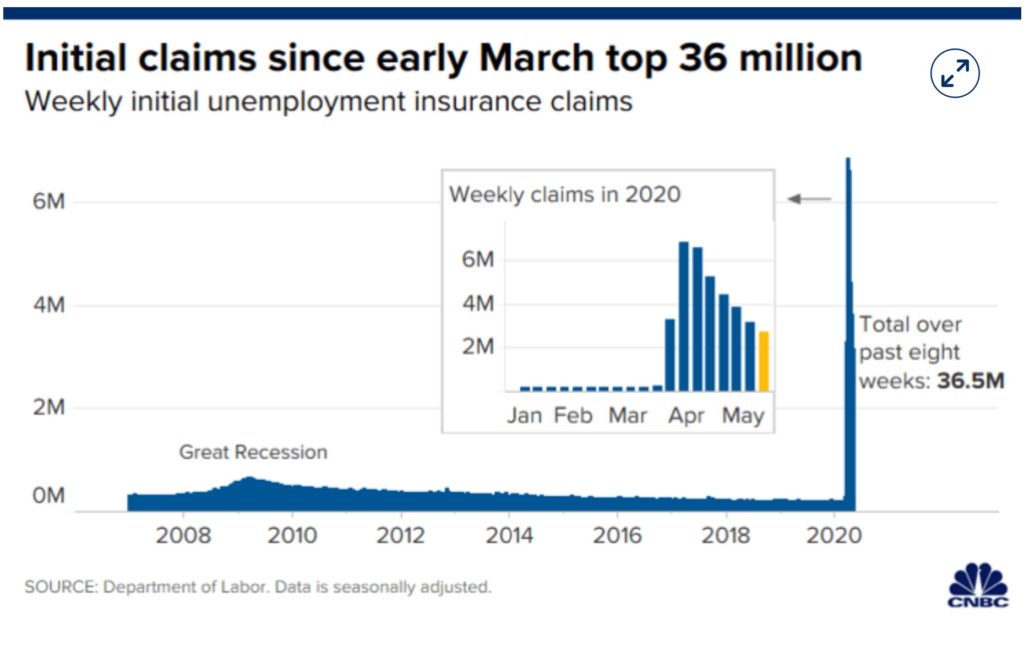
Just over 2.9 million people filed for unemployment the week ending May 9, bringing the total initial unemployment claims during the COVID-19 pandemic to 36.5 million. While lower than the previous week’s total of just over 3.1 million, the number was still much higher than the pre-COVID single-week high of 695,000 in 1982.
Unfortunately, as more people continue to file, outdated unemployment insurance systems continue to be overwhelmed. According to a New York Times poll, more than half of those applying for unemployment benefits in recent weeks were unsuccessful. As of May 9, twenty states along with Washington, DC and Puerto Rico had not yet provided assistance under the Pandemic Unemployment Assistance program, which Congress passed to support freelancers, self-employed people, and other workers who would not otherwise be eligible for state unemployment benefits.
Preliminary data analyzed by The Economist suggest that up to 15 million Americans who applied for unemployment in March and April had not received money by the start of May. The Economist also pointed out concerns surrounding the administrative problems with unemployment, and the fact that the $600 unemployment payments from the federal government are to end in July.
Reuters reports that a May Federal Reserve report states that 39% of people with a household income of less than $40,000 reported a job loss in March, compared to 19% of workers with household incomes between $40,000 and $100,000, and only 13% of workers with household incomes above $100,000.
As states and businesses reopen, the National Employment Law Project along with 223 other organizations called for the U.S. Department of Labor to clarify guidance to ensure that workers who choose to not return to unsafe work environments do not lose their Unemployment Insurance or Pandemic Unemployment Assistance benefits.
Labor economist William M. Rodgers III—Professor of Public Policy and Chief Economist at Rutgers University and former chief economist at the US Department of Labor—details the reasons Black communities are likely to bear the brunt of the economic downtown, and advises allocating a disproportionate share of resources to Black Americans.
The National Urban League’s Dr. Bernard Anderson observed that April’s high 16.7% Black unemployment rate is “a direct reflection of Black worker concentration in industries and occupations that are hardest hit by lockdowns and social distancing.”
Looking specifically at Black health care workers, sociologist Adia Harvey Wingfield says one unanticipated consequence of the coronavirus might be a setback of the modest advances the medical industry has made toward improving racial diversity among practitioners. Black Americans are approximately 13% of the U.S. population, but only account for 5% of all doctors and 10% of nurses.
Political Studies & COVID-19
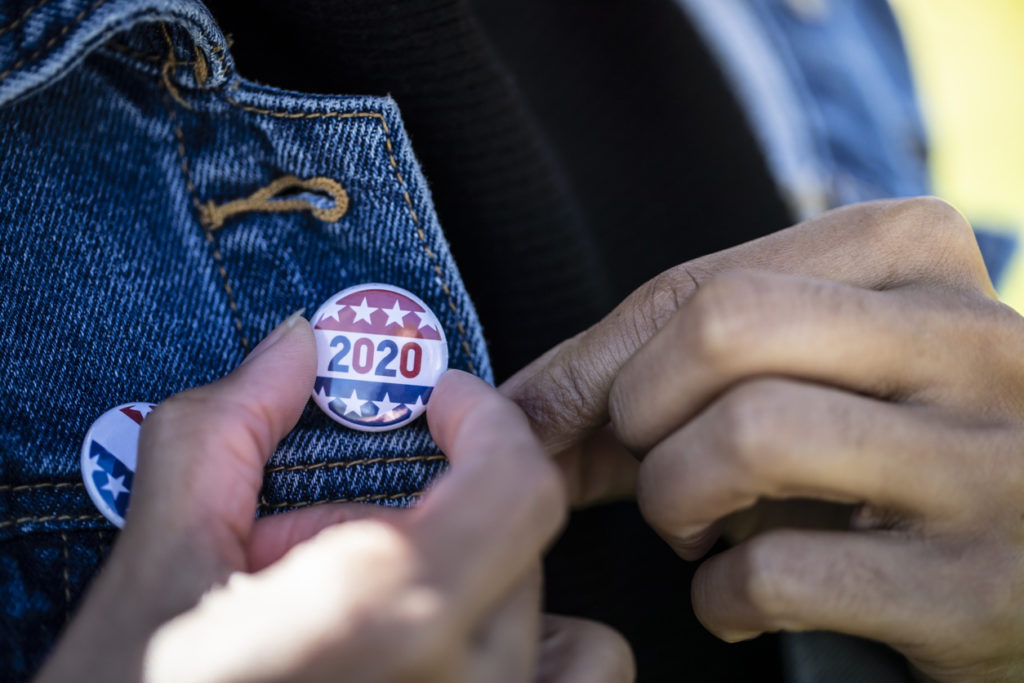
As Democrats seek to expand access to mail-in voting across the country in light of the coronavirus, they also realize that absentee voting won’t be a panacea for Black voters. CNN reports that Black voters are less likely to have had experience with absentee voting processes and are less likely to trust government institutions to handle their votes in the mail. Black Americans also are more likely to move than any other racial group, disproportionately experience homelessness, and have historically relied more on in-person voting to exercise their franchise.
Other election concerns include finding volunteers to staff the polls since many poll workers are elderly and at high risk for COVID-19. Some states have called in National Guard troops to staff polls, but Lawyers’ Committee on Civil Rights Under Law President and Executive Director Kristen Clarke pointed out that “[m]embers of the National Guard can have an intimidating effect inside our nation’s polling sites and discourage some voters from feeling able to freely cast their ballots…particularly voters of color.”
The Texas NAACP joined a group of voters and organizations to file a lawsuit challenging several Texas election laws including the state’s absentee voting restrictions.
Donna Owens writes that COVID-19 may leave Black communities undercounted in the census, which could reduce Black political representation and the allocation of public funding to Black communities.
NAACP President and CEO Derrick Johnson penned an op-ed for CNN stating that “we knew that as soon as the pandemic became racialized, many Americans would no longer be willing to make sacrifices in order to address a crisis that suddenly seemed to be not about ‘us’ but about ‘them.’”
President Johnson also responded to the release of President Trump’s former Campaign Chairman Paul Manafort from federal prison based on concerns about COVID-19. Noting that Manafort did not meet the criteria for home release, and citing that 38% of those being held in federal custody are African American, the NAACP is calling upon the U.S. Department of Justice and the Bureau of Prisons to immediately release more persons to home confinement who are in federal custody.
The Leadership Conference observed that 11 of the 15 largest COVID-19 hot spots in the U.S. are correctional facilities and the organization is calling for the immediate release of as many people as possible, as well as funding to protect the health of incarcerated people.
Organizing and Town Halls
Color of Change is demanding GrubHub’s CEO to drop “exploitative commissions and delivery fees.”
The National Black Justice Coalition and Black Policy Lab are collecting data on how Black LGBTQ and same-gender-loving people are weathering the COVID-19 pandemic.
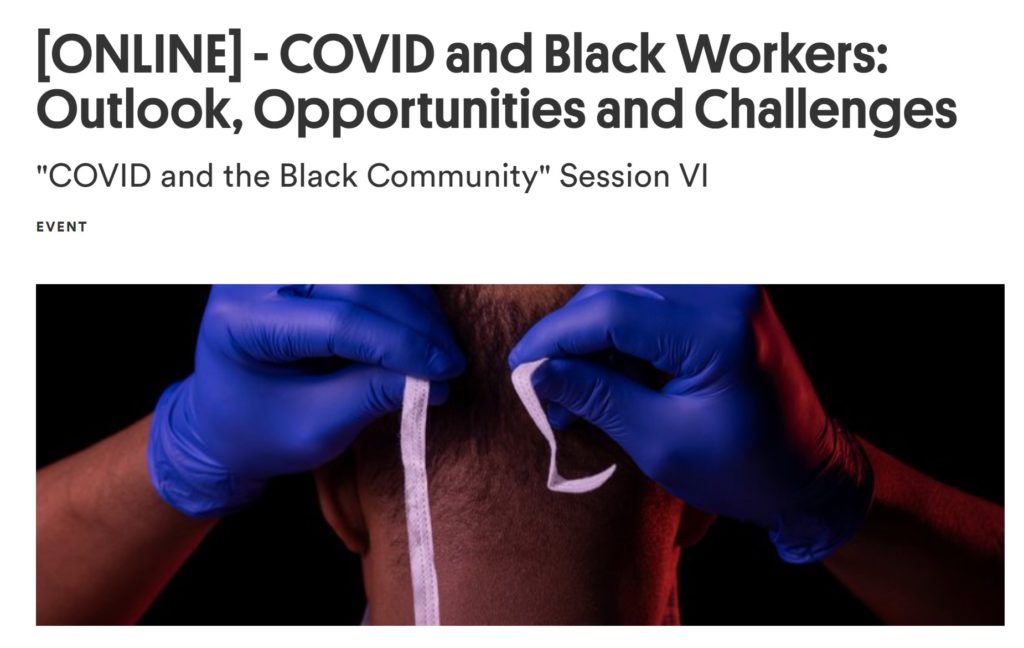
Upcoming events include “Speak Up & Speak Out: A Virtual Town Hall Meeting For Educators” (Congressional Black Caucus, May 19), “COVID and Black Workers: Outlook, Opportunities and Challenges” (New America, May 19), “Fair Fight Founder Stacey Abrams and NAACP LDF President & Director-Counsel Sherrilyn Ifill Discussing Voter Suppression” (Black Economic Alliance, May 19), “Turnout 2020: Reaching America’s Hard-to-Reach Voters in a Pandemic” (Knight Foundation and New York University, May 19), “Transforming Workforce Credentials Post COVID-19” (Third Way, May 20), “Community Leader TeleTownhall on Coronavirus” (The Bowser Administration, May 20), “Is this a New or Temporary Normal?: Life for Students of Color in Fall 2020” (The Steve Fund, May 21).
Last week’s events and discussions were held by African American Policy Forum, Black Communities: A Conference for Collaboration, Brookings, the Lawyers Committee, the Leadership Conference, New America, SisterReach, and Third Way.
Our work is critical, and your support is needed.
As we move forward in this distressing period, the Joint Center is committed to being a champion for Black communities. Please support this important work and donate now.
Thank you for your support and for continuing to stand with America’s Black think tank.

